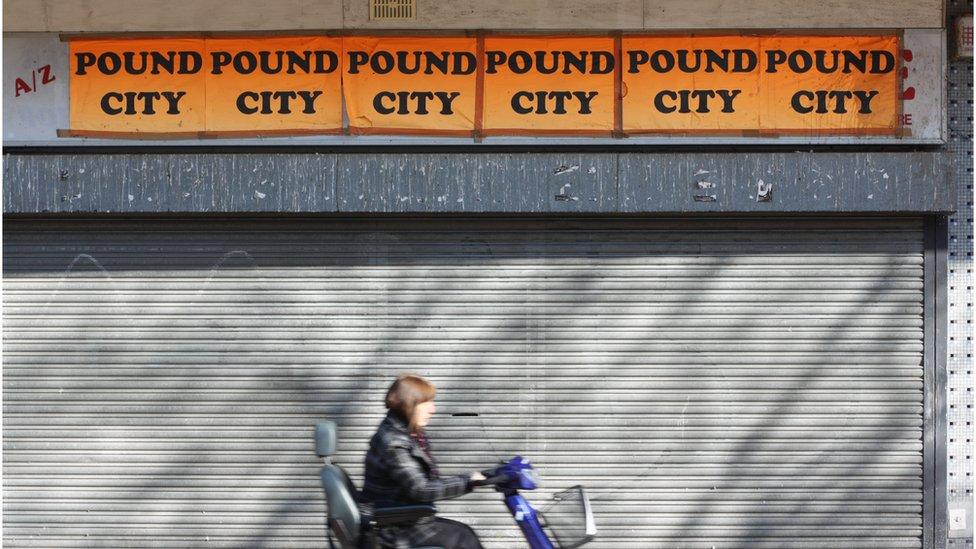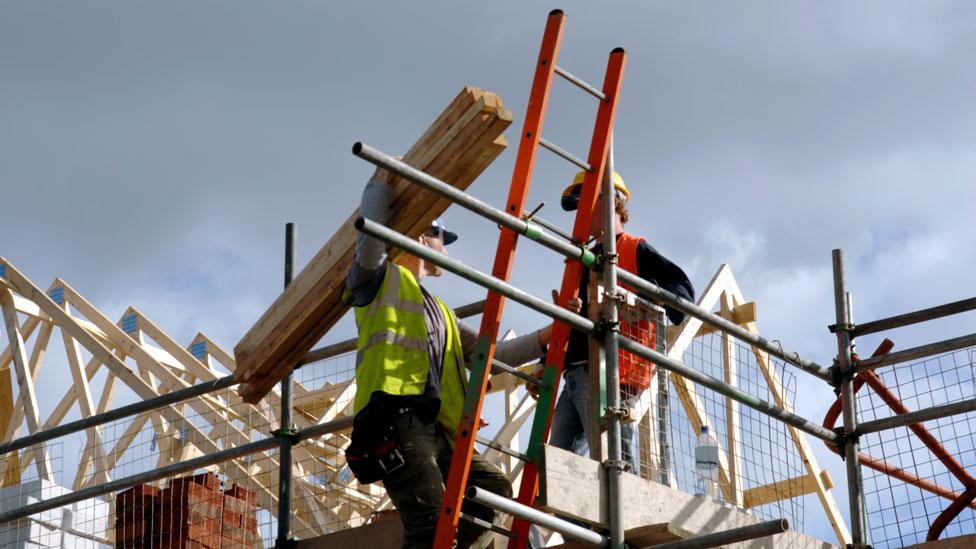Immigration: how much is too much?
- Published

The hospitality industry has been a big employers of EU workers
Maybe it was intrusive use of big data. A mistrust of Eurocracy and foreign judges.
Maybe it depended on undeliverable promises and the big red bus. Perhaps it was the complacency of the remainers, and of intransigence in Brussels.
But there's little doubt that none of these factors would have made much difference to the Brexit vote without the big issue that people on all sides tend to speak about nervously - immigration.
So when the Migration Advisory Committee (MAC) speaks, it needs close attention. Amid all the claims, counter-claims, petty prejudices about Johnny Foreigner and justifiable concerns about jobs and wages, this is the outfit that feeds real hard evidence into government thinking - or so you would hope.
It was commissioned last July by the Home Secretary, Amber Rudd, to take an in-depth and wide-ranging look at the UK's continuing economic and demographic requirement to attract a continued flow of European Union immigrants after Brexiting.
This is to help shape the UK's new immigration policy from 2021, though being commissioned by Ms Rudd it could also be seen as a helpful source of evidence to back up the soft Brexit end of Cabinet divisions on Brexit.
Hard-nosed
The interim report, external, published on Tuesday, is big on the opinion of business, acknowledging that the final report will have to balance that with other voices.
"What is best for an employer is not necessarily what is best for the resident population, which is the criterion the MAC uses when evaluating migration policy," it states.
In general, but particularly in London and Scotland, business told the MAC that it likes to recruit from the biggest possible pool of labour. No surprise there.
They shared with the MAC employer concerns, with which we are becoming familiar, of being unable to staff businesses after the Brexit portcullis falls. Without access to migrant labour, firms may not grow, and some may disappear.

Migrants have been a partial solution to population decline in Scotland
The committee seems to have listened carefully, agreeing that growth will be slowed, but without much sympathy for UK plc. The hard-nosed response is: if you've built your business model on migrant labour, you need to be prepared for when it isn't there.
This is not just about Brexit, goes the argument: this is about trends towards migrant workers choosing to go elsewhere, if for instance, sterling isn't so valuable to them.
Earnings in their home countries can be expected to rise over time, so they will eventually choose to make their money in their more prosperous homelands. What does migrant-dependent British business do then?
Reliable and flexible
The interim report also dips a toe into the controversial question of whether migrant workers depress wages.
They've got more work to do on that, says the MAC. But for now, they note very different stories for those born in older EU members (such as France and Germany), who on average earn 12% above the British-born average. They tend to do more highly skilled jobs.
Those born in the newer EU members (from the Baltic states to Bulgaria) are typically in lower skilled, lower-paid roles and paid 27% less than the British-born average (note: that is not for the same work).
The evidence is patchy, but suggests that average pay has not been much depressed by migrant workers. It may even have been enhanced among higher earners.

Some workers fear migrants undercut their wages
But among lower-paid workers, the financial crisis and long haul back to recovery offer a more compelling explanation for poor wage growth than competition from foreign workers.
What they're clearer about is that employers are getting a higher level of skill and qualification for the same money that will buy an hour of native British worker's time.
And that might help explain one of the headline findings - that employers like the work ethic, reliability and flexibility that they get from migrants. That's hard to prove with hard evidence, but plausible.
When employers say they simply can't get home-grown Brits to come and work at some jobs, the Committee has another unsympathetic response: of course they will - you just have to offer them enough pay to make it worthwhile. Employers seem unwilling to use wages as a lever to solve their labour and skill shortages.
Dependency
A lot of this interim report is dedicated to examining the case for migration being encouraged into some parts of the UK more than others.
It highlights the huge differences between most of the country and London. The capital's population is 37% foreign-born. Some 11% of the total are from EU countries.
The West Midlands has the next highest share, at one in eight, and for Scotland, it's one in 12. For north-east England and Wales, it is one in 18.
The sector where Scotland has a relatively high reliance on foreign workers is in hospitality - that's apart from London, which at 33% foreign, is three times as reliant..
This is where the Scottish government weighs in. It set out for the MAC a case that will be familiar to those who follow Holyrood's rhetoric:
Scotland has more need of immigrants because its population would fall otherwise. All its recent population growth has come from immigration.
Scotland has a special long-term problem with having enough working age, tax-paying people to fund pensions and services for retirees ('the dependency ratio'), and
Scotland has a particular need for migrants to counter the outflow of people from remoter communities.
Again, the hard evidence is examined, and the response is far from sympathetic. The Scottish government's sense of exceptionalism takes a battering.
Work longer
It is concluded that:
Scotland doesn't have more need of migrants to stop population decline. Other parts of the UK have similar challenges, including north-east England and Wales.
Following the trajectory of the dependency ratio for the next two decades, it rises for Scotland, but it doesn't look significantly different to other parts of the UK. In Northern Ireland, it rises fastest. A much more effective way of addressing the problem, it is argued, is raising the pension age and having people work longer.
And the rural question? Why look to migrants to fill the gaps as people leave these areas? Why not address the reasons why people leave, and find ways to encourage residents to stay? (There's no suggestion what these might be.)
"Migration is rarely the only policy available to deal with a problem and always needs to be compared with alternatives," writes the MAC chairman, Sir Alan Manning.
The final report will have more to say on those alternative. It is set to have a very significant influence on the future shape of the British economy and of British society.
- Published27 March 2018
